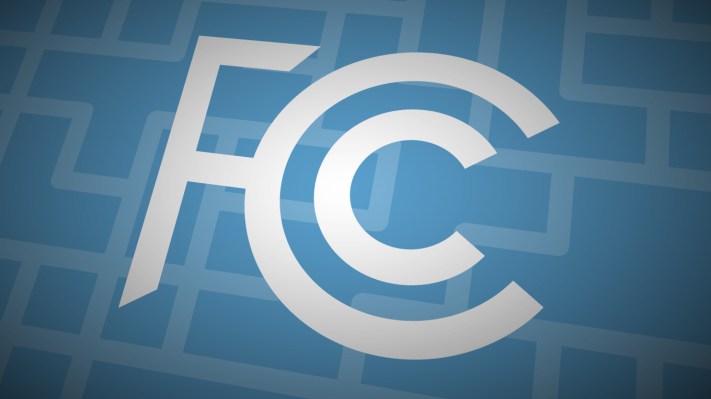From Capitol Hill to boardrooms, interested and affected third parties are predictably pouring in on the FCC net neutrality rules that were released this morning.
The rules show how the FCC intends to enforce the open Internet policy it passed two weeks ago. Chairman Tom Wheeler has said he expects legal challenges to this order, and today’s release brings us closer to seeing the gloves come off.
The FCC released a set of “myths” regarding its open Internet rules, pushing back against the narratives that have been employed by net neutrality opponents. A sampling: “The Order does not regulate the Internet,” and “There is no “utility-style” regulation [in the Order].”
Presumably, foes of the rules will continues to press ahead, but it’s worth noting that their complaints have not been ignored by the agency.
Overall, the rules had few surprises for those who have been following the debate over how to keep the Internet open. They clearly lay out policies that would prevent blocking, throttling and paid prioritization as FCC officials have said.
But of course, stakeholders still had plenty to say after today’s release.
Political Fallout
Republican lawmakers who oppose regulation of the Internet were quick to criticize the rules, referring to them as “Depression-era.” It’s a reference to reclassifying the Internet as a telecommunications service rather than a communication service, which subjects it to the same regulations that apply under the Communications Act Of 1934. They’re gearing up for a House communications and technology subcommittee hearing next week, where members will grill all five commissioners on oversight of the FCC.
“The world finally gets to read and understand just what the White House, acting by proxy via a partisan FCC vote, has done to impose the federal government’s heavy hand to regulate the Internet as a utility. We look forward to working our way through the 300+ pages of this Washington manifesto. Our six-page draft legislation could prevent abuses and promote robust Internet investment – all without the overreach included in the FCC’s order.” — Republican Rep. Fred Upton (R-MI), who chairs the House Committee on Energy and Commerce
Nothing says a “free & open” #Internet like 300+ pages of new #regs from the heavy hand of the fed govt. RT to agree. http://t.co/g2JytFjEYP
— Rep. Steve Scalise (@SteveScalise) March 12, 2015
The Internet is working just fine – if it ain’t broke, don’t fix it. http://t.co/4kzQNOMh4w @fxnopinion #NetNeutrality
— Rep. Vern Buchanan (@VernBuchanan) March 12, 2015
My response to the FCC’s release of their Depression-era Internet regulations http://t.co/GbwSOCMNRp
— Rep. Greg Walden (@repgregwalden) March 12, 2015
Private Groups React
Companies and lobbying arms of the private sector were quick to respond to the lengthy rules. Here’s a sampling of those responses, both supporting and criticizing the order.
In Favor
Netflix:
The FCC’s order is a step toward ensuring Americans get the Internet access they pay for and content providers like us have recourse from broadband monopolists demanding what the FCC called “unfair tolls.” The FCC also made clear these rules complement “vigorous antitrust enforcement” of the mega-mergers currently under review. Those deals involve three of the four broadband providers who charged Netflix unfair tolls to deliver the movies and TV shows consumers request.
The Internet Association:
Internet companies commend Chairman Wheeler on his expeditious release of the final Open Internet rules today. We are still reviewing the Order, as the details are very important. Net neutrality protections must be ironclad and prohibit broadband providers from engaging in conduct that undermines a free and open Internet.
Opposed
CALinnovates:
[T]oday marks the beginning of yet another chapter of the ongoing and seemingly never-ending net neutrality debate. Now that the actual document is finally here, the partisan feud about the agency’s lack of transparency on an issue dealing precisely with openness and transparency might finally be put to pasture. In the coming days, speed-readers will have their moment in the sun as the nation scrambles to comprehend the 400-page Order and its effect on the Internet ecosystem.
TechFreedom:
The order is a radical break from nearly 18 years of bipartisan consensus — and even from the FCC’s own proposed rules. This reflects the politicization of a supposedly independent, expert agency and makes it even harder for the FCC to win in court
Broadband for America
The release of the FCC¹s Open Internet Order rules reinforces what many already know: its the first step on a long road of litigation and uncertainty for America’s broadband future. While we study the details, the fundamental fact remains that the only sustainable solution is Congressional action that codifies the open internet principles and secures America’s role as the global broadband investment and innovation leader.
To be sure, this isn’t the last we’ll hear about net neutrality. Over the coming days as lawyers have the opportunity to delve further into the rules and the dissenting opinions, we’ll get a preview of the upcoming legal battle.
